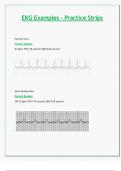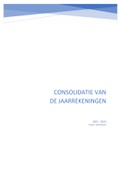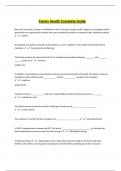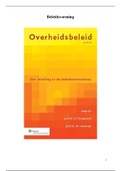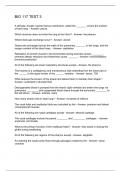From 1889 to 1902 the United States of America fought the hope of independence of
Filipinos in a violent war. The purpose of this conflict was for Americans to enforce a
protectorate and spread their influence over the Pacific Ocean. This real proof of American
imperialism provoked reactions in intellectual circles. In 1899 the British author of The Book
Of The Jungle, Rudyard Kipling, expressed himself in favor of colonialism. His poem “The
White man’s Burden” was written to support Americans in their conquest. The British
empire itself knows a phase of expansion, which is characteristic of the Victorian era.
Kipling’s poem corresponds perfectly to this “Victorian Mind”, a culture of social progress
within the country while colonies suffer from British dominance.
The poem is divided into seven stanzas, each composed of eight lines. Every stanzas begin
with this anaphora “Take up the White Man’s burden”, that recalls the title. Kipling wants to
warn the United States which is colonizing the Philippines. According to him, this alleged
“duty of civilization” is a burden that white people shall bear.
How does this poem show us the moral and religious roots of the idea of colonization
? I shall follow the text linearly in order to show how Kipling is justifying such an idea.
Firstly, the anaphoric line (line 1) seems to be an address to the reader. The
imperative tone is a harangue, a praise, even a supplication for the American empire. The
words “White” and “Man” have a capital letter, it shows that this “burden” concerns all White
people, as if they were on a sacred mission. The term “burden” bore by White people refers to
the cross that Jesus Christ had to bear to save humanity from its sins. From the first line, the
reader already has an idea of what Kipling is trying to convey, White people are on a divine
mission from God and colonization draws from the roots of religious duties. In line 2, Kipling
implies that leaving in order to colonize another country is the same as sacrificing “the best
ye breed”. In other words, the White Man is sacrificing his own heirs, his pure and perfect
blood. It is confirmed by line 3, with this idea of forcing sons to leave the quiet and peaceful
Western world to exile them to foreign land. The theme of exile is also a reference to
religion. The Hebrews, who were monotheists, were enslaved by Egyptians, by pagans and
had to leave in order to be set free. In line 4, Kipling assumes that this sacrifice only has the
purpose to serve the “need[s]” of others. Those “captives” are those whose land is occupied,
in this sense they are truly captives of others. However, Kipling uses a paradox within the
same line : the White Man’s burden is to provide for his own prisoners, as if the relation
, between the colonizer and the colonized were reversed. This idea of a White Man’s burden is
underlined by the term “heavy harness” in line 5. The White Man’s, even if he holds
“captives”, is submitted by an unbreakable bond, the harness of moral and religious duty.
Through our modern readers’ eyes we fully detect the paradox, the absurd justification of
colonization. According to Kipling the White Man is the victim of a destiny, made difficult by
inferior people. The idea of inferiority is well expressed by the author in the following lines
(and throughout the poem). Kipling uses many derogatory adjectives to describe those
colonized people. They are “fluttered” and “wild” (l.6), terms that convey the idea of laziness,
maybe even alcoholism, and a lack of education and rationality. In the next line, the word
“new-caught” is linked to a certain animality, as if those people were wild animals that the
White Man managed to capture. It can remind the reader of the fourth line , those
“new-caught peoples” are “captives”, put in care of so-called superior people. Kipling
criticizes in line 7 the lack of gratitude that characterizes those people (“sullen peoples”).
This theme of reward and gratitude is very present throughout the poem. In the last line of
the first stanza, Kipling puts forward an argument that is very common in the Victorian era.
Their breed is a mix of “devil” and “child”, a mix of savagery and minority. In Victorian
literature, the idea of devil roots in foreign people (especially in people of color) was spread
widely. In Jane Eyre, a novel written by Charlotte Bronte in 1847, Mr Rochester’s wife, the
daughter of “the Creole”, is presented as a “demon”. Furthermore, children were not
considered as people, in a legal sense. In Latin the root of the word “infant”, infans, means
the one that cannot speak, therefore the one that cannot express any feeling or intelligence.
In the second stanza, the moral superiority of the White Man is even more
demonstrated by Kipling. The virtue of patience despite the heaviness of the burden (l.10) is
underlined. The White Man provides protection to those people (l.11), but against what
threat ? The term “terror” does not have a capital T but it does remind the reader of the
threat of revolution, which terrorised English people. The Filipinos had fought the Spanish
army to gain independence, now they have to fight the American army against this invasion.
The White Man could be here to protect those “wild people” against the dangerosity of
independence. This will of independence is “a show of pride” (l.12), that needs to be
repressed. The White Man has the virtue of humility and abnegation, a virtue that he can
spread and teach. The idea of humility seems extremely contradictory to the whole purpose
of the poem, which is to praise the moral superiority of the White Man. This superiority is
not only based on moral ground, but it is also intellectual. The White Man must show
patience and must use an “open speech and simple” (l.13) / “An hundred times made plain”
(l.14). It shows how Kipling saw those people as childish and stupid, unable to understand

